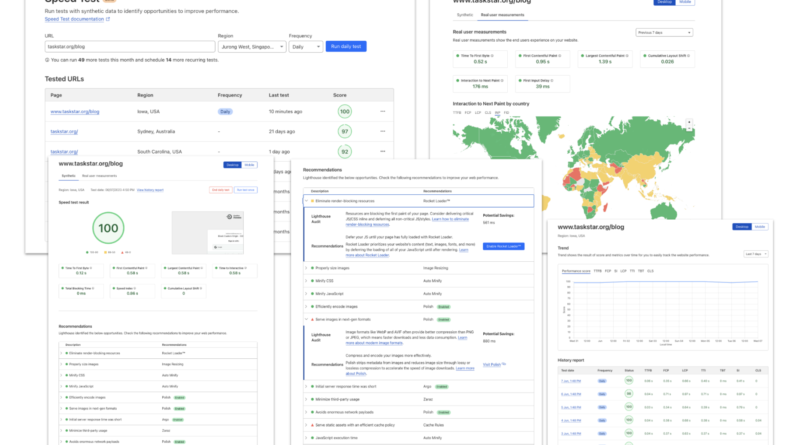Cloudflare launches Observability, a tool to beef up web monitoring
Organizations increasingly see observability — the ability to measure a system’s current state based on the data it generates — as key. In a recent survey from New Relic, more than three-quarters (78%) of IT decision-makers and practitioners said that they saw observability as an enabler for achieving business goals.
Website observability and analytics in particular can be tricky beasts, given the dynamic and evolving nature of the web. But those who ignore them risk a negative impact to their business. A recent study by SOASTA shows that longer page load times lead to higher bounce rates (“bounce rates” referring to the rate at which visitors quickly leave), averaging at 13% for loads under three seconds and going up to almost 60% after nine seconds.
There’s no shortage of products tackling the web observability challenge, from Google Analytics to Chartbeat to Parse.ly. But Cloudflare, the provider of a growing number of content delivery network and security services, thinks it can do one better.
Cloudflare today launches Observatory (replacing Cloudflare’s old Speed Tab), an approach to performance monitoring that integrates real-time user monitoring (RUM) data, enabling customers to understand their website’s performance as experienced by visitors. RUM — captured through Cloudflare’s Browser Insights feature, which inserts data-collecting JavaScript “beacons” into web pages — provides insights into a user’s browser or devices, recording metrics such as page load times, response times and other user interactions.
Cloudflare describes Observatory as “a single pane of glass” to capture customer experiences in a range of environments and network conditions, giving site owners an ostensibly “holistic” view of performance as well as recommendations to enhance that performance.
“Website performance always has a major impact on user experience, but it’s especially amplified at a time when customers are tightening their spending due to inflation and the rising cost of living,” Cloudflare CTO John Graham-Cumming told TechCrunch in an email interview. “Observatory answers two critical questions: how quick is my website and how do I make it quicker? We want to show that users don’t need to be an expert in web performance to give their visitors an incredible user experience.”

Cloudflare’s Observability, with attempts to centralize web monitoring in a single dashboard.
To this end, Observatory incorporates Google Lighthouse, Google’s tool for evaluating web performance, and enables regional testing — allowing customers to simulate website performance in different regions of the world. Depending on a customer’s Cloudflare plan type — free, Pro, Business or Enterprise — they’ll be able to run more tests in more regions, Graham-Cumming explained. Pro customers, for example, can set up five recurring tests for their most important page from five different locations.
“We built Observatory after talking to our customers and understanding their pain points,” Graham-Cumming said. “Observatory provides tools for customers to easily measure performance, make informed decisions and effectively communicate these results to their stakeholders.”
Observatory’s recommendations leverage the info gathered from Lighthouse, RUM testing and regional testing to identify issues and offer tailored Cloudflare product settings to implement fixes. For example, Observatory might suggest using image resizing on a specific page, and point customers in the direction of a relevant Cloudflare product.
Customers can view these recommendations within the Cloudflare dashboard, directly linked to audits.
Other platforms deliver similar suggestions and testing for website optimization, like Reflect, which allows customers to test a site by “teaching” the platform in real time. But Graham-Cumming makes the case that Observatory is more streamlined than many of the solutions on the market.
“Almost all competitive platforms are overly complicated and have a steep learning curve, either through use of outdated technologies or confusing, muddled user interfaces,” he said. “We designed Observatory to simply and effectively help teams speed up a website for a global audience. We know there are very few companies out there with dedicated teams for each individual facet of the business like compression, webpage optimization and so on. [But] Observatory takes the learning curve away and makes it simple for customers to understand the real-world performance of their website.”
Of course, Observatory is synergistic with the rest of Cloudflare’s web analytics and development tools, acting as a not-so-subtle funnel to its premium products and services. It may be the kind of boost the company needs, judging by its recent earnings report. Cloudflare missed on the top line and revised its full-year revenue guidance down in Q1 2023, leading the company’s stock to plunge more than 20%.




